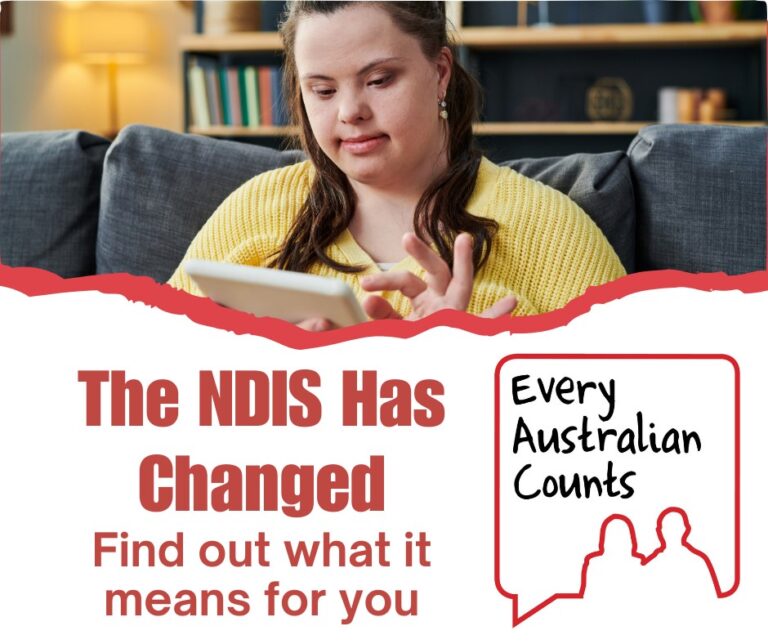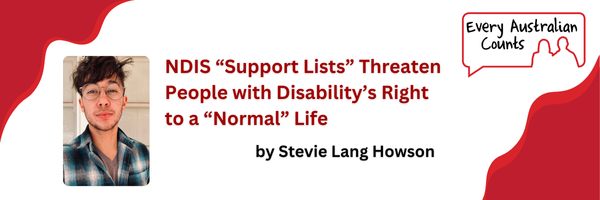Planning
First plan planning meeting
Once your access request has been accepted and it has been confirmed you are an NDIS participant, you will be contacted for a planning meeting.
This planning meeting should be face to face. It will be done with either an NDIS planner or a local area coordinator (LAC).The LAC will be from an organisation located in the community. Each area has a different local area coordinator – you will need to check the NDIS website to find the LAC in your area.
The LAC will sit down with you and talk you though your first plan. They will ask you about what kind of help you currently get, and what extra help you might need. They will also ask you about your goals – what other things you might like to do but can’t at the moment.
Not everything in this conversation should be or needs to be about specialist disability support. The LAC or planner will ask you what other kinds of services or support you might need and help connect you to it – they might be things like health care or services provided by the local council. The LAC or planner will also ask you what kinds of activities in the community you are interested in and again help connect you to them.
It’s important to remember at the end of the conversation, the LAC will ask you if you want your plan and funding to be managed by the NDIA, managed by an independent agency or whether you want to be agency managed, plan managed or self managed. That’s an important decision, and you should think about it before you have the meeting.
And just remember – just because it is called your first plan does not mean only plan. This is not a “one-off” event. This is just your first plan to get you started with the NDIS. Don’t feel like you have to get everything sorted with this first plan – just focus on the urgent and most important stuff.
At the end of the meeting, the LAC will write up the plan and send it off for approval.
There is more information about the process for developing your first plan on the NDIS website.
So what kind of help could I get?
To understand what kind of help you might get through the NDIS, you first need to think about a concept called “reasonable and necessary”. Reasonable and necessary sounds like a bit of a mouthful, but it is a really important part of the NDIS.
The NDIS can only fund supports for people with disability that are “reasonable and necessary”.
Necessary means that the supports are essential for that person to get out and live their life. These supports are required because of a person’s disability – if they did not have a disability, they would not need them.
Reasonable means that the supports must also be fair, and are not more than what an ordinary member of the community would expect to receive.
In short, the NDIS will fund supports for people with disability to live an ordinary life.
The staff who work at the NDIS decide what is reasonable and necessary according to guidelines. In order to be considered reasonable and necessary, a support must:
- be related to the person’s disability;
- not include day-to-day living costs;
- represent value for money;
- be likely to be effective and beneficial to the person with disability; and
- take into account support given to the person with disability by families, carers, networks, and the community.
So what kinds of things are considered reasonable and necessary?
- Help with personal care like showering
- Aids and equipment like wheelchairs
- Therapies like speech therapy, physiotherapy or occupational therapy
- Help with household tasks like cooking and cleaning
The NDIS won’t fund things that are not related to a person’s disability or are considered ordinary living costs, like rent and food.
You can find out more about reasonable and necessary on the NDIS website. There are videos, fact sheets and some information in easy English.
The NDIS website also has a series of stories which provide examples of the different kinds of support that are available.
I’ve already got an NDIS plan – what will planning look like for me?
If you were in an NDIS trial site, or have already been in the NDIS for more than one year, the first plan process won’t apply to you.
At the end of 12 months your plan will come up for review. Plan reviews are an important part of the NDIS. They allow everyone to check back in and see how things are going.
The review will probably be with your local area coordinator (LAC). The LAC will focus on what has been working well, and what supports might need changing. If things in your life have changed in the last year, this is a good time to let your LAC know. Or if you have achieved some of your goals, you might need to set new ones.
After this first review, your next plan might be set for a longer time – like two years. But it will be different for everyone, depending on your situation.
You can read more about plan reviews on the NDIS website.




